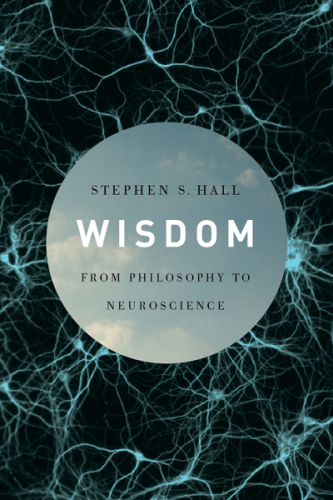
Wisdom
From Philosophy to Neuroscience
کتاب های مرتبط
- اطلاعات
- نقد و بررسی
- دیدگاه کاربران
نقد و بررسی

February 15, 2010
A veteran science writer delivers a dense but illuminating combination of philosophical ideas and hard research.
Laboratories study intellect, emotion and ethics, writes Hall (Size Matters: How Height Affects the Health, Happiness, and Success of Boys-and the Men They Become, 2006, etc.), but only recently have scientists turned their attention to wisdom, which may be defined as using all three to make a sensible decision. The author begins by sketching the teachings of history's first great wise men (Socrates, Buddha and Jesus) not forgetting Confucius's admonition that paths to wisdom include reflection (the noblest), imitation (the easiest) and experience (the bitterest). In the pre–CT scan era of the 1970s, a graduate student, Vivian Clayton, published pioneering research. Her first study, aimed at lawyers, attempted to determine if wisdom increases with age. The results were inconclusive; later studies suggested that it's important but not essential. This and her later papers produced a considerable buzz at psychological meetings, but she failed to receive research grants and left academia in 1982. By this time the ball was rolling, aided by swelling scientific fascination with the brain and dazzling high-tech instruments to examine it. It turns out that patterns of knowledge and judgment typical of wisdom appear in adolescence and don't measurably increase over time. Exposure to adversity such as war or personal loss helps, although it's not a good idea to have too much. Those searching for easy tips on achieving wisdom will not find them here, but diligent readers will be rewarded.
A steady stream of insights into the psychology and neurological mechanisms of wise decision-making and the researchers uncovering them.
(COPYRIGHT (2010) KIRKUS REVIEWS/NIELSEN BUSINESS MEDIA, INC. ALL RIGHTS RESERVED.)

December 15, 2009
What is wisdom? Is it the same across cultures and time? Is wisdom too complex a phenomenon for science to investigate? Who in the scientific community has tried? And what does science say about the traits we often associate with wisdom: compassion, humility, patience, and so on? Award-winning science writer Hall ("Size Matters; Merchants of Immortality") investigates these questions and more. Somewhat wordy and digressive, with little in-depth analysis, his book is periodically thought-provoking and offers something interesting in each chapter. VERDICT This is worth considering, especially for the general reader interested in what contemporary neuroscience can tell us about wisdom as a psychological and developmental phenomenon and about its associated mental states and behavioral characteristics. Interested readers seeking a challenge may consider a more academic introduction to neuroscience and philosophy such as "Philosophy and the Neurosciences: A Reader", edited by William Bechtel and others. [50,000-copy first printing.]Jonathan Bodnar, Georgia Inst. of Technology Lib. & Information Ctr., Atlanta
Copyright 2009 Library Journal, LLC Used with permission.

March 1, 2010
Definitions of wisdom abound in Halls exploration of the concept, which he reports is no longer the exclusive domain of theology and philosophy. Clinical psychology and neurobiology have elbowed their way into the subject in recent decades, and their investigations and investigators make up much of Halls work. An author of several books about human physiology (Size Matters: How Height Affects the Health, Happiness, and Success of Boys, 2006), Hall details brain-scan experiments intended to elucidate at a neuronal level components of wisdom such as ethics and also cites studies that rely on interviews with older people about their life experiences. From the authors accounts, it doesnt seem as though the scientist in the lab coat offers better definitions of wisdom than the sage in the toga. An essential ineffability about wisdom dogs both the empiricist and the theorist, according to Hall, but, not willing to concede futility in the hunt for wisdom, he suggests it is to be sought in family life and interpersonal relationshipsa practical proposition on which his readers can reflect.(Reprinted with permission of Booklist, copyright 2010, American Library Association.)

























دیدگاه کاربران